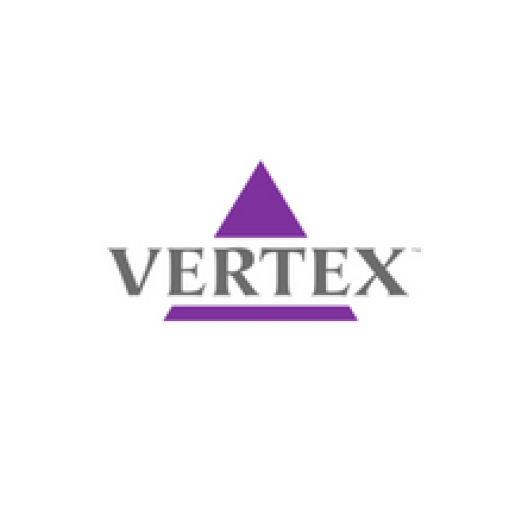
Striving to eliminate prejudice around the world
Interviews
Dr Ryan Howard, Senior Research Scientist at Vertex Pharmaceuticals, spoke to myGwork about why commemorating IDAHOBLIT every year is important both personally and professionally. He also offers tips for organizations celebrating the annual occasion for the first time, and looks to the future of LGBTQ+ equality.
Please
introduce yourself and tell us about your role at your organization.
My name is Dr. Ryan Howard, I work as a Senior Research Scientist at Vertex Pharmaceuticals. Vertex is a truly transformative organization with a track record of inventing novel drugs for serious diseases that have a high unmet need. This spirit of innovation is carried through to their commitment to a fair and equitable workplace for all its employees, including those who identify as LGBTQ+. When I’m not at the lab bench as a high throughput screening scientist, I am co-chairing the PRIDE employee resource network (ERN) at Vertex’s Oxford research site. Part of Vertex PRIDE’s global vision is to connect, educate, support, and advocate for our LGBTQ+ employees, community, and allies - something I am extremely passionate about, so when the opportunity came up to join as one of the co-chairs of this ERN, I jumped at it.

Why is IDAHOBLIT important to you?
There isn’t a
queer person I know that hasn’t experienced some form of harassment or negative
treatment based on their sexual orientation or gender identity. 64% of LGBTQ+
individuals in the UK have been victims of a hate crime (Galop
Hate Crime Report 2021), and the experiences in particular for transgender
individuals is trending negative; in one survey, 99% of trans individuals have
experienced transphobia online (TransActual:
Trans lives survey 2021). The threat of homophobia, biphobia and
transphobia being an everyday possibility can have a lasting mental and
emotional impact on LGBTQ+ people that cisgender and/or heterosexual
individuals may not experience. While I have always flown the Pride flag very
proudly, I know my own personal experiences with homophobia have made me
constantly assess my surroundings, making a judgement as to whether an act as
simple as holding my partner’s hand could lead to a potentially negative
outcome. That is why IDAHOBLIT is so important to me, as its mission reminds us
to constantly strive for a world in which such prejudice is eradicated.
Why, in your opinion, is it important for
organizations to visibly celebrate IDAHOBLIT?
With Pride month
just around the corner, it might be tempting for many companies to hold off
their LGBTQ+ focused ID&E initiatives until then. However, here at Vertex
Oxford, it was important for us to shed light on this less well-known
recognition day, and so we have brought our Pride month recognition forward to
start on May 17th, kicking off with a collaborative seminar hosted
by MyGWork around the theme of ‘allyship in an increasingly hostile world’. We
felt that given the hostility still experienced by many LGBTQ+ people in the
UK, providing guidance to our colleagues around the topic of allyship can help
us to actively maintain a fair, equitable, and empathetic workplace.
Furthermore, while Pride month often focuses on the local or regional, IDAHOBLIT
enables companies to view homophobia, biphobia, lesbophobia and transphobia
through an international lens, and sheds light on the inequalities faced by
LGBTQ+ people across the globe: important as corporations continue to expand
their global footprint.
What
tips would you have for an organization marking IDAHOBLIT for the first
time?
Data speaks
volumes. People often underestimate the amount of prejudice and hate crimes
experienced by members of the LGBTQ+ community (University
of Limerick, 2019), so raising awareness of these statistics is the first
step to engender positive engagement with IDAHOBLIT in the workplace. Once
people are aware of the numbers, providing them with the necessary tools to
become active allies for the LGBTQ+ community is a good next step. Skill
building in the areas of active bystander awareness, calling out and calling
in, unconscious bias, and psychological safety, can all be powerful in building
a fair and compassionate workplace to improve experiences for LGBTQ+ employees.
Not only will this create an internal safe space, but these skills can be
implemented by employees into experiences outside of the workplace, helping
everyone to play a role in safeguarding LGBTQ+ people in wider society.
What
would you like to see next in the journey for LGBTQ+ equality?
It would be
fantastic to see a meaningful reduction in statistics associated with
discrimination and hate crimes towards the LGBTQ+ community here in the UK. As
people are more freely able to go about their daily lives without fear of violence
or harassment, they can live their lives to the fullest. From my own personal
experience, Vertex is a company that is actively committed to supporting its
LGBTQ+ colleagues, and as a result we can bring our authentic selves to work. Without
worrying about any form of discrimination, either towards us or others, we can
fiercely contribute to the company’s mission of creating transformative
medicines for serious diseases.
